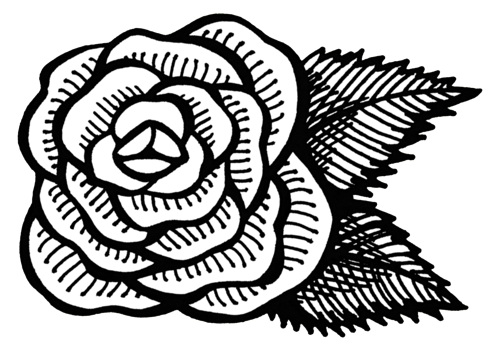Great news, all! Author, scholar and traditional witch, Lee Morgan has joined us today to talk about witchcraft, the faerie faith, folk horror, and the richly complex and beautifully queer intersection of poetry, story and occult mysticism. I stumbled across Lee’s works listening to Gordon White’s quality podcast Runesoup, and their interview there is well worth a listen. Lee is based in Australia. His latest book, Sounds of Infinity, was released by The Witches’ Almanac in August, and it’s a fascinating read!
Witchcraft has a legacy from the stars, the Underworld and the stars within the Underworld. It’s about getting called back into strange kindred relationships with beasts and faerie familiars.
Welcome, Lee! You’re a traditional witch and occult practitioner, and your written works, while not exclusively for witches, wind around Old Craft and the faerie faith. Your latest book, Sounds of Infinity, circles the interplay between the two. Witch and faery are two words with countless definitions and projections. Could you give us a brief rundown on how you approach these terms?
As I experience it witchcraft is a deed, but it’s also a way of being, and seeing, the possession of an Other set of eyes. People who are witches have witchcraft happen through them, or more properly they are witchcraft exploring itself. Witchcraft has a legacy from the stars, the Underworld and the stars within the Underworld. It’s about getting called back into strange kindred relationships with beasts and faerie familiars. Witchcraft knows how to work with poisons and convert them into medicines, it confronts aversions and turns them into powers. Depending on who you are and your perspective some forms of witchcraft are malignant, some appear very healing. They are both the same thing, one is just happening to a being you value or can see, whereas the other is benefiting someone out of sight and mind. What is given must always be taken from somewhere else after-all... This allegiance with the Other, the forest and the wild, the spirit of heresy and taboo breaking cannot be extracted usefully from the witchcraft I know.
To me calling something ‘Old Craft’ specifically is about preserving and salvaging inter-generational knowledge (including the glimpses of a future world young people can see more clearly from where they’re standing), belonging to a family or house of witches to whom you owe loyalty and honourable behaviour and can expect it in return, and from whom you have received techniques, guidance and wisdoms. That’s how I experience it, but I don’t believe in setting myself up as authority of what classes as Old Craft, I’ll leave that to those who love defining things.
As to faeries, well… to me they are best described as a mysterious Other being, a sentience that shares this planet with us that has put all its consciousness eggs in a different basket. The Good Folk are not caught inside time quite the same way as we are and there are many things about our own time and space-bound minds that make Them incredibly alien to us. If there is reason to be afraid of Them, to my way of seeing, it revolves around this fact.
Your writing is quite artistic and poetic. How do your occult and art wires cross?
Thank you. I would say in my case they are almost the same thing. Writing is often an oracular art for me. Not everything I have to say is my own, as I think is true to lesser or greater extents for any writer whether they know it or not. Often when I let go and don’t try to control where the writing leads it crosses over with events in this world in uncanny ways, either predicting them or appearing to create them in the manner of spellcraft, any conscious mind interference prevents it working.
Very interesting! By conscious interference, do you mean that when you attempt too much control over the writing process those uncanny crossovers dry up?
Yes, exactly. I think then you risk operating from the ego and trying to create what the conscious mind wants to happen. The really powerful sorcery seems to derive from a deeper place than that, the desires of the part of you that is eternal, rather than the fleeting whim.
To me the real magic lies in stories, which are only sometimes found in word form. Their power goes beyond both writer and reader, or storyteller and listener. Though the observer is necessary in the dance neither the writer nor reader creates a story, but it is woven anew between them on each telling.
It’s notoriously dangerous to speak directly about the fae. How does one strike a respectful and fruitful balance between revealing what wants to be revealed and protecting what doesn’t when inspiration flows from Otherworldly sources who may be delicate, wild, secretive, or dangerous?
Well, sometimes my fingers won’t move when I try to type something, that’s usually a good indicator to be quiet! But in general it seems to me They are leery of hard facts spoken of Them and authoritative statements made aloud in the public square. They seem to prefer to be referred to artistically without any claims being made to a definitive truth about Them. Maybe they just don’t want to get stuck down to our cork-board of observation.
Hmm—I imagine observation could get extra sticky if words can behave like spells. Within tarot, we see art, words, and gaze seem to expand, redirect, and mutate the underlying archetypes they reference. If that can happen with archetypes, can it happen in other spheres? Do you suppose language has greater transformative properties upon its subjects and objects than we usually recognize from a human vantage point?
I'm wary of the full-on post modern view that individual words alone can just be changed and it can totally alter our perception. This has crept into the occult with a lot of word policing, such as: don't say energy, say power, or don't say magic say sorcery. I think this can lead to people getting too stuck in terminology, creating in-crowds around off-limit words, assuming the mental work is done because we are now using animism instead of paganism, and even fighting over who should get to use that particular combination of grunts and squeaks we call a word. As if something like the words 'traditional witchcraft' are actually the thing in and of itself and can be stolen somehow...
To me the real magic lies in stories, which are only sometimes found in word form. Their power goes beyond both writer and reader, or storyteller and listener. Though the observer is necessary in the dance neither the writer nor reader creates a story, but it is woven anew between them on each telling. I think it's that which people don't recognise from a human vantage point when they want to use words with almost violent certainty. Faeries may be leery of being in a final 'this is the one true fact' story about themselves, or this term is the 'right' one to call them, rather than an open-ended spiralling and constantly reweaving narrative. In 'Sounds of Infinity' I took the view that all stories about Them are relevant and revealing to some degree, even sources scholars wouldn't touch, and tried to look at primary text material as story rather than final facts.
Where does the title Sounds of Infinity come from? Can you tell us some of what it means?
It comes from a quote in Evan Wentz’s ‘The Faerie Faith in Celtic Countries’ which runs: ‘On Dalby Mountain, this side of Cronk-yn-Iree-Laa the old Manx people used to put their ears to the earth to hear the Sounds of Infinity (Sheean-ny-Feaynid), which were sounds like murmurs. They thought these sounds came from beings in space; for in their belief all space is filled with invisible beings.’ I chose it because I was struck by the sense of high mysticism in it that echoes the timelessness state of a faerie encounter.
Sounds of Infinity is beautifully illustrated! Tell us a bit about the illustrations and art direction.
Lily Collard, a fellow Australian, Old Craft practitioner, and talented artist illustrated SOI. Her work has a certain quality about it that’s perfect for this kind of collaboration, something very vital, a deeply textured aliveness... I’d like to do some future projects with her.
Nice! The pieces she created for this book are so hypnotic. People can follow Lily’s work on Instagram @henstooth.
You’ve threaded an intriguing nonlinear narrative through most of your texts. There’s strong continuity in archetypes and even plot across genres, modes, and timelines. We’ve all seen authors carry narrative through serial novels or fantasy worlds, but I haven’t seen an author pair genre fiction with scholarly nonfiction in a single book quite the way you do. It’s an engaging and innovative leap. Why weave together fiction and nonfiction, research and personal vision, within a single project? Was that a planned strategy or did it emerge in process?
This is a great question. I would never claim to be entirely in control of this narrative though I did know from the beginning that it would all interlock. I guess I could be described as an obsessive. Everything I do is about one interlocking, rolling, and unravelling macro-project. Having done a lot with literary theory at university I tend to see everything as stories, even the harder edged stories that involve research and facts. To me they are just collections of proofs to support the story a person wants to tell about reality, they show examples where other people have shared the same experience throughout time to carve out a deeper space for a different consensus reality. To me the sole purpose of research and non-fiction is that it illuminates the ways we can experience a story more fully, in this case the great story of witchcraft. Or the even greater story of life. And to me, being a witch is a great big true story not just to do with witches but how society deals with the outsider. We’ve watched what ‘witch’ means get stretched and changed during my own lifetime and non-fiction allows that stretching to continue. Fiction is the exuberance that happens in the new spaces and weird little kinky alleyways it opens up.
Holy dread is part of any genuine encounter with the Otherworld.
. . .
Things that are buried sink to the bottom of the unconscious mind and ferment there in the darkness, biding their time before an eruption into the psyche of fertile and disturbing material.
Let’s talk horror! You categorize your novels in the folk horror genre. What differentiates folk horror from classic horror? And why choose horror as a vehicle to speak on contemporary occult practices?
Traditionally, until the modern movement to rehabilitate the witch’s reputation, witches have always been the monster in the fairy-tale. When I was quite young Anne Rice’s vampire chronicles influenced me in one key way. She set out to make the monster the main character. I loved the idea of a monster-tale. I wanted to do the same thing with characters living lives that many people even today would deem monstrous in their difference, encountering spiritual realities that most would deem terrifying, and show how these people, despite not being sanitisable for mainstream consumption, have some unique perspectives to offer and might even be good people in some ways most normative folk aren’t. Witchcraft should always contain a bit of the monstrous. It should because Grandmother Nature Herself does and we are nothing if not a reflex of Hers. Also because things that are genuinely Other are uncomfortable and strange, awkward or odd. Holy dread is part of any genuine encounter with the Otherworld.
Folk Horror in particular interests me because I believe this idea of old buried ways coming back to life in unsettling ways is a natural outcome of the way we’ve forgotten and lost touch with place, folklore and custom. Things that are buried sink to the bottom of the unconscious mind and ferment there in the darkness, biding their time before an eruption into the psyche of fertile and disturbing material. I for one welcome our new overlords!
Welcome indeed! Oh goodness—Anne Rice takes me right back to my high school edge-lord days. (Circa Buffy, Hot Topic, and Evanescence, of course. How many elder millennials on the nostalgia-cringe express with me here? Lest we forget our roots!) I do still love the monster as protagonist. This sparks a couple follow-up questions if you’re game.
So your heroes veer morally ambiguous, grotesque, and even wicked, and they are virtuous and loving. In contrast to wickeddy-sympathetic protagonists, you’ve got some profoundly evil villains. Is there middle ground between moral relativism and absolutism in this world? Are some things steadily good or evil, even when complexity, fluidity, and ambiguity are constantly in motion?
The hive mind craves complexity and ambiguity in this age, but media and fiction love to deliver these through deeply cynical to nihilist filters. I’m thinking of Game of Thrones, post-apocalyptic destruction porn, and so on. Your leads, even when antiheroes, retain uncomfortably earnest, nigh idealistic qualities—almost verging on hopepunk in moments. Outside the comedy genre, we don’t often see contemporary, ethically gray characters with that kind of sincerity and well, sweetness. What roles do hope, vulnerability, and tenderness play amidst the monsters and our new overlords?
To me good writing refuses to be embarrassed about any aspect of our human experience and attempts to show a full range, including sweetness, hope and atrocities. I think, as you point out with GOT etc there is a trend for being able to be the most hopeless and bleak, yet at the same time in other circles there's a move towards wanting to remove uncomfortable themes. Both of them emerge from the same source, a discomfort with aspects of reality. The bleak crowd are just as uncomfortable with beauty, heroism and the finer potential of humans, probably because it asks something of us at some level.
I'm not really focused on the good/evil distinction, but you might say Christopher and Lux are both 'good' people in a relatively straightforward sense, despite the fact a conservative audience might be offended by their monstrously good sex lives! Really I'm more interested in the state of innocence and the state of corruption. Robin in the Lux books, for instance, is a 'good' person but the world around him forces him to engage in violence. So I view him as an innocent rather than a good character, as he just wants to survive and for his people to survive like we all do, he naturally responds to all others as equals, rejects shame and lives more by the wisdom of the wilderness than that of humankind. In that context I think it takes a remarkable amount of strength and courage to hold on to hope, vulnerability and tenderness. I see it as a warrior act, in any era.
If people find the earnest aspects uncomfortable I'd say the same as when people are made uncomfortable by the violence and darker aspects of the story: these are real things that happen in the world, real terrors to be processed and sat with and hopefully opposed (one only has to observe world news or history if people think some of its too purple and baroque) but also real tenderness, real decency-against-the-odds, real possibilities for wholeness of being, and recognising our interconnectedness with each other. What other point is there in reading stories if not to see new possibilities? And what good are any of these 'hopepunk' aspects if they can't and don't happen against a backdrop of struggle and suffering that resembles the world we inhabit?
True to horror, there’s no shortage of pathos in your novels, and many of your characters struggle openly with grief. How can art and ritual help the grieving?
Powerful art and ritual (for I don’t see a meaningful distinction between these two terms) can allow us to enter the timeless, a space where separation is revealed as an illusion. The feelings that we still have about what is past, what appears lost in our world, as well as the consciousness of a person lost, are just as real as they ever were whilst alive, they still make up part of the tapestry of the present. Modern grieving processes generally haven’t wanted to sit with pain, or loss, and rush straight on to the sanitising of the wound via ‘moving on’. But there is nowhere to go, to move on to, or to escape from, because this is the world. Our world has loss, desire, and the wounds of love, and they are the fuel for art, they are the necessary thorns to the rose. Paradoxically nothing is really lost, so my writing does a dance with both loss and its impossibility.
A poet is anyone who can twist words and wring out the staleness of habit from them. Occultism is just experiencing that same feeling through ritual.
Your novels are peppered with a sort of hidden bibliography in references to outside works and evocative selections of poetry. What is the occult significance of poetry?
The only difference between poetry and my magic is that poetry is verbal, whereas much of my witchcraft is not. Poetry consists of any words that knock your usual assumptions or state of being to the side with a turn of phrase so surprising and fresh that you have to read it over and over until you’ve assimilated its Otherness. A poet is anyone who can twist words and wring out the staleness of habit from them. Occultism is just experiencing that same feeling through ritual. I am almost as passionate about seeing people remember the power of oral poetry and committing parts of it to memory as I am about the obvious forms of witchcraft in my novels. To me anything that disturbs or unsettles our usual habitual sense of reality is a magical ally.
We’re all divination nerds here. What, if any role does divination play in your creative process, and do you have a favorite method of divining?
Automatic writing is my favourite form of divination; I have entrained myself to automatic typing as well now, which was hard at first.
In A Deed Without a Name, you write about intentionally blurring the line between “vision and visualization.” I think I recognize what you’re getting at there, and if I’m not mistaken, that state is a goldmine for both divination and artistic creation. What do you mean by de-categorizing vision vs. visualization, and how can folx begin cultivating that blur?
I think it’s a whole process of getting out of one’s head and trying to place down (to pick up again later when needed for other things) our tendency to judge. We usually want things to be hard and fast when really the line between the two is liminal and blurry. If you allow the play state, where you stop trying to take it all so seriously and stop worrying if you’re doing it right, playing with visualisation usually results in people relaxing more. Of course we’ve all got various reasons to resist this play approach, fear of mental illness and delusion, and that one guy we’ve all met with the way out head fantasies that he insisted on teaching to everyone who hadn’t asked… As long as we don’t invest too heavily in them at first, or insist that everyone else has to do it the same way, I don’t think there’s a danger in this play attitude, letting the intensity build over time. Most of the tendency towards limiting or dangerous delusions seems to come in along with the anxiety we inflict on the play state rather than this fuzzy treatment of lines between mental states.
Right—like there’s room to pull fantasy and vision forward without obliterating all distinctions between the tangible and imaginal worlds?
Oh and picking up on those fears of delusion or mental illness—we’re not saying this type of blurring is necessary to practice artistry or divination! There are strictly grounded and rational ways to approach these for those predisposed to trouble from mind bending, or who have difficulty accessing such states. With so many rich paths to art and wisdom, there’s no need to chase techniques likely to cause one harm.
Sure. When I'm talking about witchcraft I very distinctly do not mean all forms of magic or divination. Witchcraft is a very particular thing and it's not for everyone. Yet at the same time it's part of our cultural heritage in regards to how we process the figure of the outsider and therefore is potentially interesting to everyone, even when not right or even safe for everyone to practice. There are forms of magic and certainly divination that I think can be for anyone willing to practice.
Queering something is never about replacing that hetero focus with a gay or bisexual one, to me it decentralises ourselves as humans entirely. Queering is about allowing a space where the full diversity of sexuality and gender expression and the life forces of beings with either or neither can all have space to exist at the same time.
There’s a wonderful queer spirit running through your work! Many of your fictional characters fall under queer and poly umbrellas, and in your nonfiction, you repeatedly question and trouble the gender binary in relation to occultism, faerie, and spirit beings. In one of your books you state outright, “the Other is queer.” What does that mean and how can magic and mysticism benefit from queering?
Well, faeries aren’t humans, for a start, so it seems absurd to me that we expect their world to mirror ours as though they were mammals whose gender and sexuality must be like our own. Witches have historically been accused of virtually everything that mainstream society likes to place outside itself. The world inside the hedge is very fond of putting people in boxes, it seems like a comfortable way to live for a lot of people, and sometimes we need them to try to explain ourselves to others. For a large part of humanity something having a name and being boxable makes it possible to obtain some degree of consideration for it. But my characters are people of the Outside, their loves and their lives take shape from wild nature, which I would argue (with all its different mating strategies from male sea horses carrying young to predatory wasps who lay their eggs in the bodies of other creatures) is incredibly queer.
I guess the most obvious benefit to this for the world of magic is that you get the fresh and quickened influence of unrepressed energies, and you stop expecting massive cosmic processes to be all about penis inside vagina symbolism just because that’s how one hairless hominid happens to mate… I mean really… Queering something is never about replacing that hetero focus with a gay or bisexual one, to me it decentralises ourselves as humans entirely. Queering is about allowing a space where the full diversity of sexuality and gender expression and the life forces of beings with either or neither can all have space to exist at the same time.
You consistently uphold the notions of diversity and complexity of spirit within this and Other worlds. Humans already have a rough time embracing diversity within our own species. How can we become more receptive to diversity and intricacy within the natural world and Otherworlds?
I don’t write my books for the mainstream reader, yet at the same time I don’t not write them for them either if you know what I mean… I am open to it, but in general I don’t hold out too much hope for mainstream acceptance of diversity and complexity on the scale the Otherworld has to offer. When it comes to non-witches I would be content if my work contributed to helping them resist the urge to round us up at first sign of social stress or allow others to do so, and maybe even listen to our perspective a bit. Outside of that most of what I say will only be thinkable, let alone doable, for a certain subset of people we call witches. That’s okay with me. But I guess if I had to give advice I’d say uniformity and sameness and our striving for it have hurt more people in the world than diversity ever has. If a difference in someone’s belief or behaviour isn’t hurting you there’s no reason you need to even be able to understand or imagine it, just let it be.
Changeling lore plays a large role in your works. I have to confess, I harbor some discomfort with old changeling tales as a spoonie with neurodivergent and disabled loved ones. Historically, violent faerie exorcisms in Ireland brutalized and killed a lot of people who were likely disabled or autistic. Even today in some New Age circles, autistic and ADHD kids get labeled as “indigo” or “fairy” children in ways that turn toxic. That said, I don’t think these abuses necessarily negate the ontology of all changeling lore or Other-to-human-world crossovers, nor do these abuses reflect on the Other side of the equation.
It’s a haunted and mysterious world, but humans so often misinterpret hauntings and project strains of Otherness where they don’t belong. How can we better honor our variances, without conflating them, when operating with any cosmology broad enough to acknowledge spirit beings who are not human, humans beings who are Other, and humans who get toxically othered, but who may not be aligned with or open to spirit/Other themselves?
As a parent of an autistic child, and someone who may have received a diagnosed myself had I been tested, I can understand why this one could attract some ambivalence. My son finds the autism story perfectly acceptable to explain himself to himself and others, and I think that is the key to a healthy understanding of changeling lore in a modern context. We should never suggest to our children they are changelings. According to the lore if they were they would tell you, after never having heard of it before! No one should ever be storied that way against their will. Consent would be the leading point for me. If someone chooses to own the changeling word for themselves and it makes sense of their experiences for them, then that is quite different to toxically Othering someone else. It is my perception that the changeling story has lost so much traction that it's unlikely to be resurrected in this manner, the indigo child story is a different matter though. I have seen that one imposed upon the child. I don’t think changeling or indigo stories should be told about someone, particularly not a child.
What advice would you give to readers who are interested in learning more about faerie, and may be tempted to approach the faerie world, but are coming mainly from familiarity with the sanitized, whimsical versions of fairy folklore?
I would say to go regularly to quiet places where there are no humans and no humans have walked for at least a day or so, be very quiet and still, not just physically but in your head as well. Perhaps go at twilight, near a liminal place with a crossroads or a water source. You could take traditional gifts like milk, honey or lightly cooked cakes. First though I would consider why you want to meet them? A genuine encounter can lift the lid off a person psychologically and be quite unsettling. I would have a reason in mind, something you’d like to work collaboratively with them on like saving a patch of threatened forest from logging perhaps, something they might see value in that isn’t you asking for something for yourself. They are various, just like humans are, some are more benevolent than others and just because they might appear beautiful does not make them harmless. Think long and hard about any agreements they might ask you to make with them, especially if they do so on your first meeting with them. Don’t eat anything they offer you or say yes to anything worded unclearly, it might be best not to use the word ‘yes’ at all. They can give great blessings but they extract things in return and they will hold you to the letter of your agreements. Traditionally they don’t like to be thanked (gifts instead) or looked at when they don’t know you are there.
Ah, this is wise and practical advice! I can just hear an echo-chorus of Irish forebears yelling “DON’T!” and that’d be last word you’d hear on it. I’d like to underscore your caution on examining motivations and—at risk of going all mom-friend on the readers—add an extra caution against paranormal thrill-seeking. I do understand the impulse, and even condone it in small doses within tarot since this is a relatively gentle medium by occult standards. Casual thrill-seeking around spirits, Others, and Good Neighbors can drive a person mad and worse. The folkloric record is colorful, often grim, and there are friendlier paths to poetry. For those fixing to feel spooked, there are thrills aplenty in cracking open a horror novel, such as Lee’s fine books.
Do you think it’s fair to say that a life without spirit encounters can be a kind of gift in its own right? Certainly, it’s nothing to be ashamed of.
Whilst I find it hard to imagine such a life myself I know many people who live very happy lives without it. In fact, many seem to have almost like a mental immune system response to an experience that allows them to partially forget it rather than have to alter their worldview to accomodate it. I assume this function serves a purpose and is there for self-protective reasons.
If we don’t redefine what is beautiful to include the monstrous and the strange we will never be able to see it in the natural world either. We need to learn how to create resilient communities of mutual aid that work with the land around us and always keep our eyes on the big-picture . . .
In Unless They’re Wicked, Robin says “we believe that there are certain people born right when it’s time to reshuffle the cards.” Are the cards reshuffling in our own time? And if so, any advice from your world for the seekers, fools, rebels, witches, weirdos, and queers bracing themselves now for the crack and slip of the deck?
If the cards were ever about to hit reshuffle then they are gearing up for it now. I believe witches have a part to play of some kind, one that we can’t possibly see the full shape of as individuals. Those who have traditionally been Othered are stepping up and insisting that the mainstream ear hear our voices, in a way that has perhaps not happened before, especially on this scale. Witches were by definition someone who didn’t get a voice, as was the changeling. In the abusive sense of these words they were something said about you, done to you, claimed about you… But now people are calling themselves witch or queer, or weirdos, taking traditional terms of abuse and owning them and there are a lot of powers that be in the world that don’t like that. They are busily constructing their counter-narratives, trying to make us seem foolish usually, fragile at one moment, dangerous the next.
Nonetheless, stress is coming to us as a species. If we don’t do something about our predatory relationship with our biosphere then we will face a collapse. We’re in the red to Grandmother Nature. We have to balance our account either on our terms if we’re fast enough, but most likely on Hers. And when stress arrives people tend to come for the weirdos. We, the weirdos, have the benefit of historical knowledge at least. We need to build Other-inclusive communities where we value the contributions of the neurodivergent, the queer, the old, the gender variant, the young, the broken, the chronically ill and where we encourage inter-generational learning in both directions. Because these 'different' people are so often where the mark of the witch is to be found, not only in the photo-shopped image of a typically attractive cis body clutching a broomstick on Instagram. If we don’t redefine what is beautiful to include the monstrous and the strange we will never be able to see it in the natural world either. We need to learn how to create resilient communities of mutual aid that work with the land around us and always keep our eyes on the big-picture rather than the spirit of nit-picking that allows divisions to be sown between us.
Beautiful.
What starting point would you recommend for new readers who’ve just discovered your work?
I would say just dive in anywhere. The only linear order is in the ‘book one, book two’ structure of the novels. But if you are going to read some of my fiction then you will appreciate it more if you read all of it. Because they are basically one big story. They also bring out extra aspects of my non-fiction.
Where can the people follow your work, buy your books, and generally support what you do? Any upcoming events or projects that readers should know about?
Of course Facebook has me and you can follow my blog that contains relevant short fiction connected (predictably) with all the other stories at: https://lee-morgan-lyhb.squarespace.com/
I’ve also got Book Four of the Christopher Penrose Novels: ‘The Heart of Hidden Things’ lined up to be published before the end of the year. There will also be a re-release of ‘Unless They’re Wicked’ to complement the release of both book two and three of that series as a trilogy.
Many thanks to Lee for his time and fascinating insights! I hope you’ve all enjoyed this interview, and I think quite a few of you will enjoy the books as well. A Deed Without A Name, Standing and Not Falling, and the latest, Sounds of Infinity are in the occult nonfiction section, and Unless They’re Wicked and the Christopher Penrose books are shelved with the thrillers. What better way to pass the chilling season up here in the Northern Hemisphere than with a stack of chilling tomes?
Note: these are adult horror novels with graphic content some may find disturbing. CW: suicide, rape, incest, abuse, violence, depression & grief, heresy. Green Flags: hierarchical subversion, romantic consent, queering & gender-queering, positive masculinity, heresy.

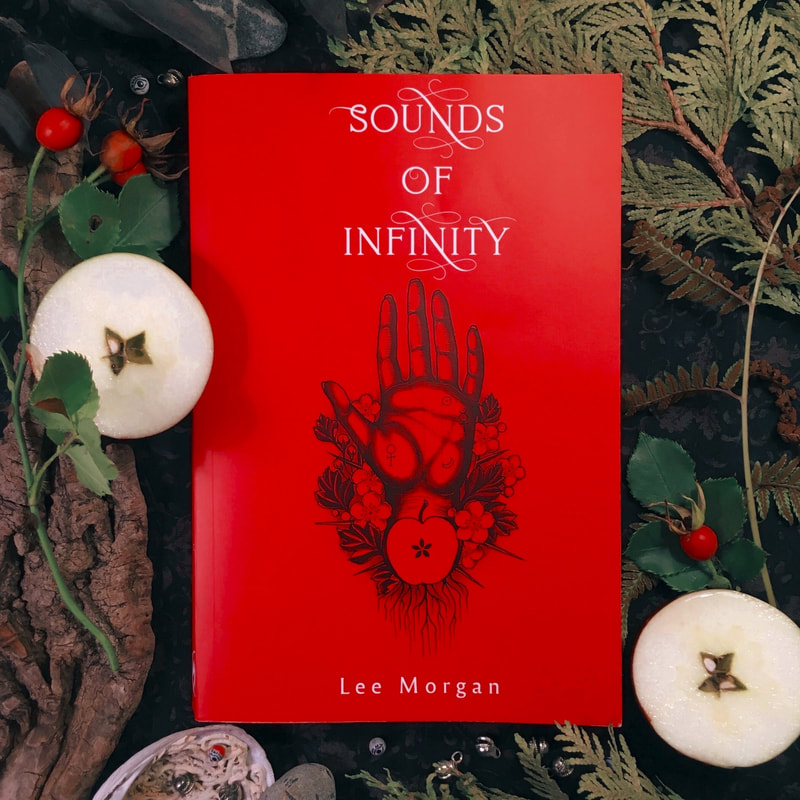
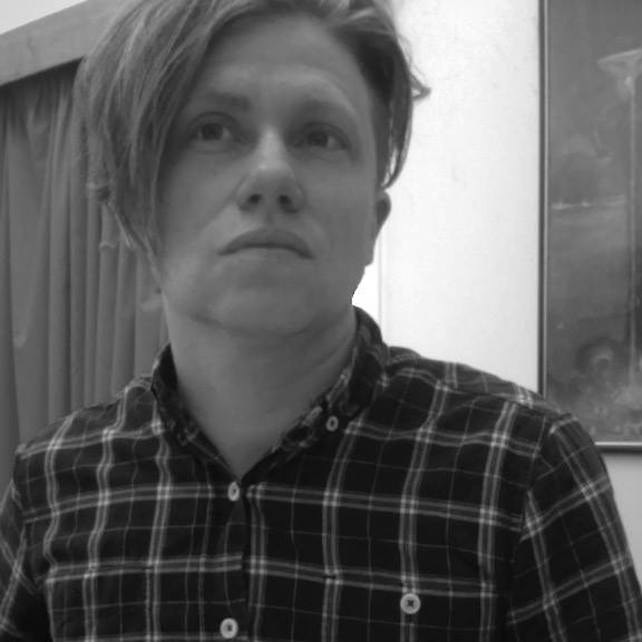
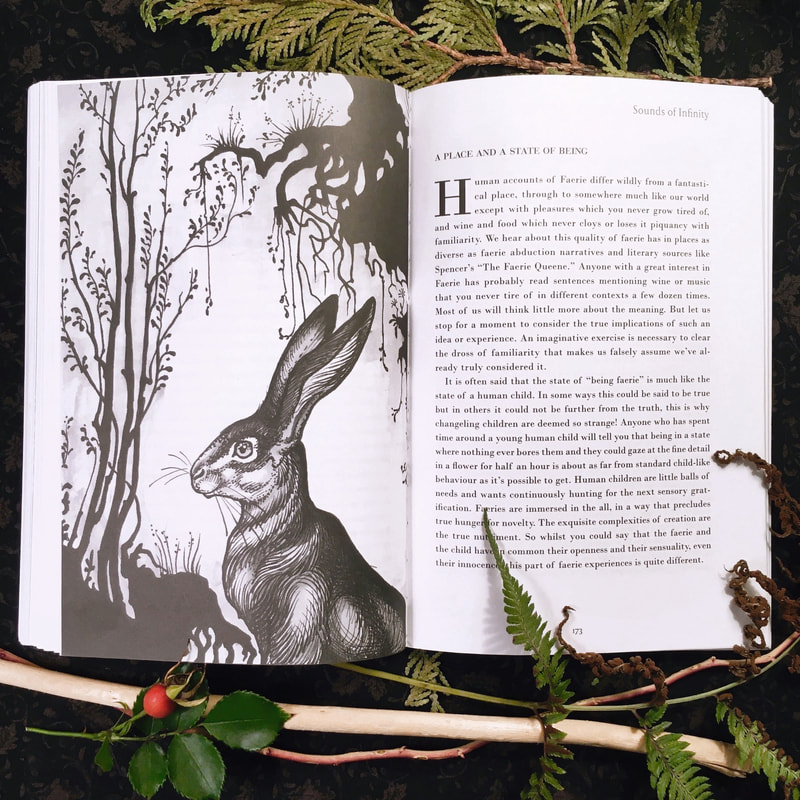
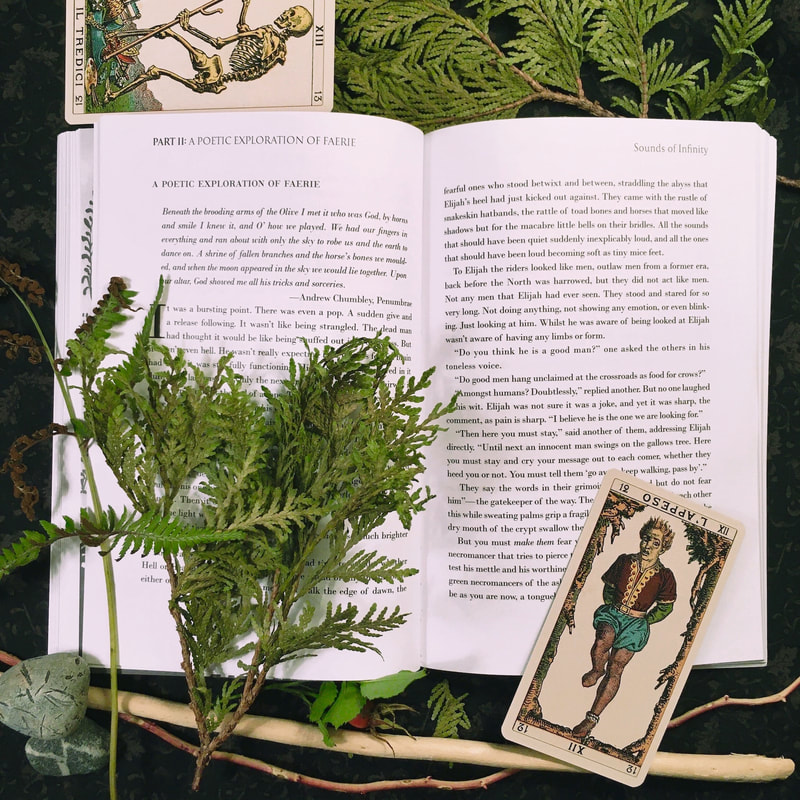
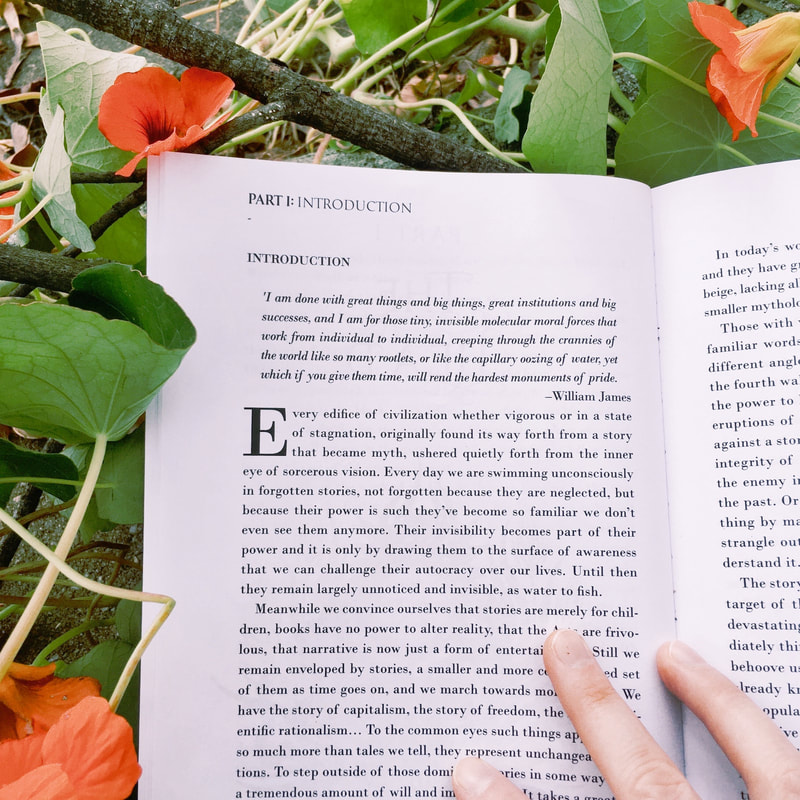
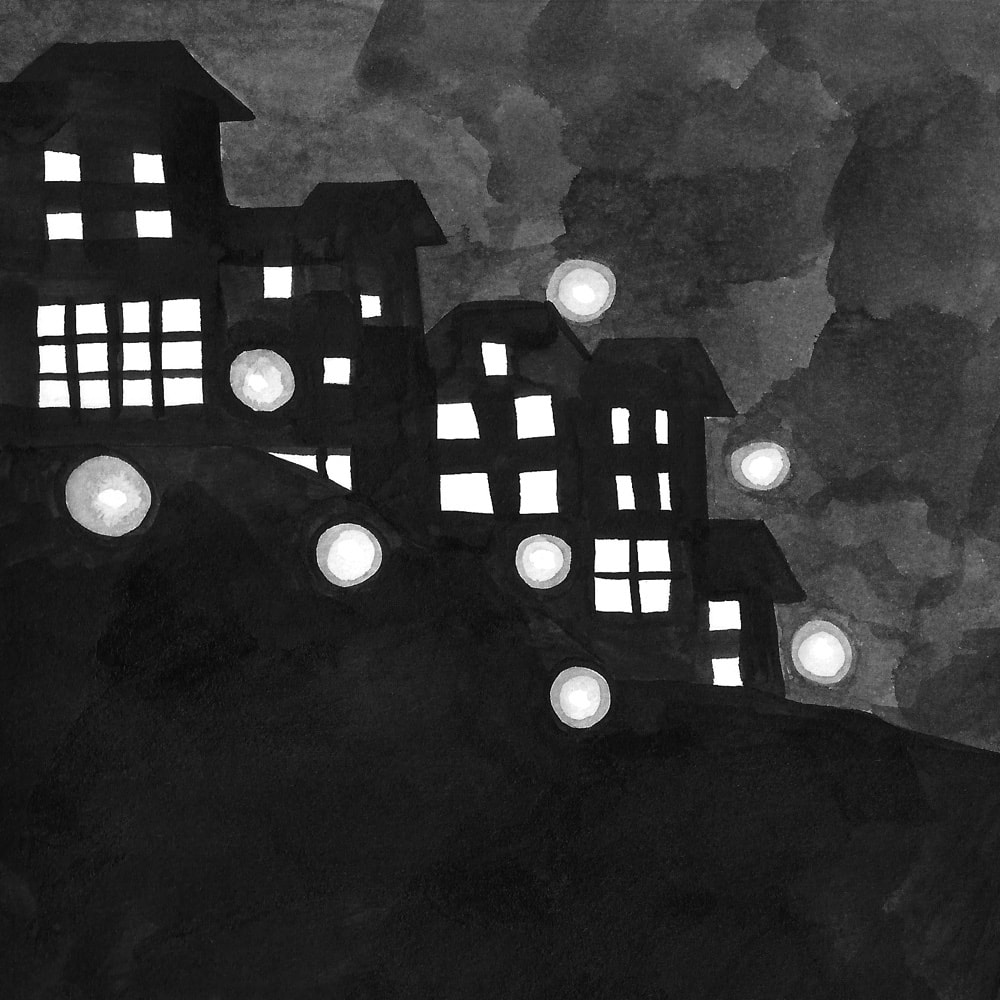
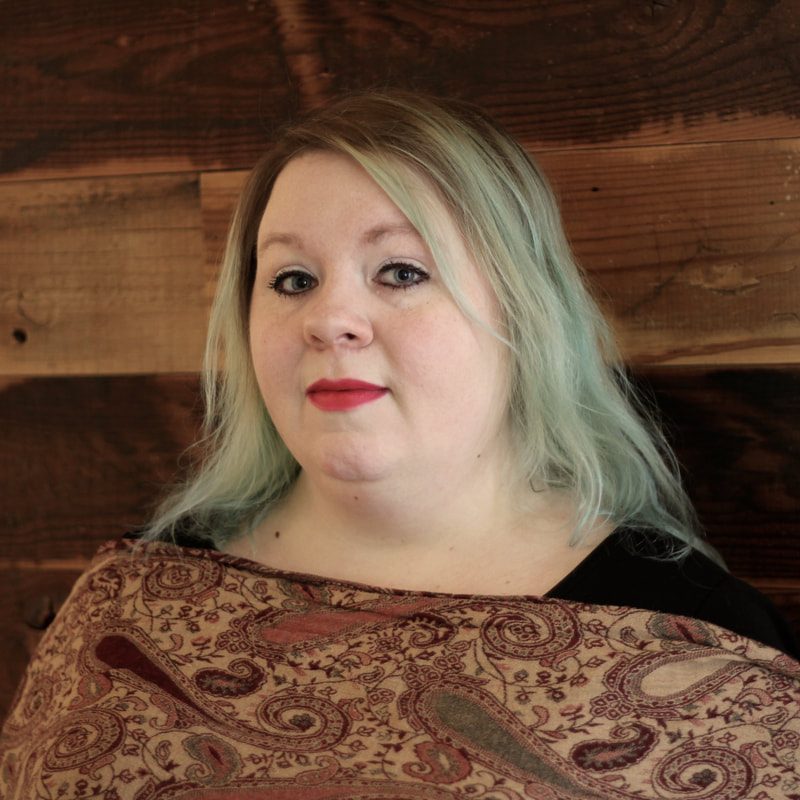
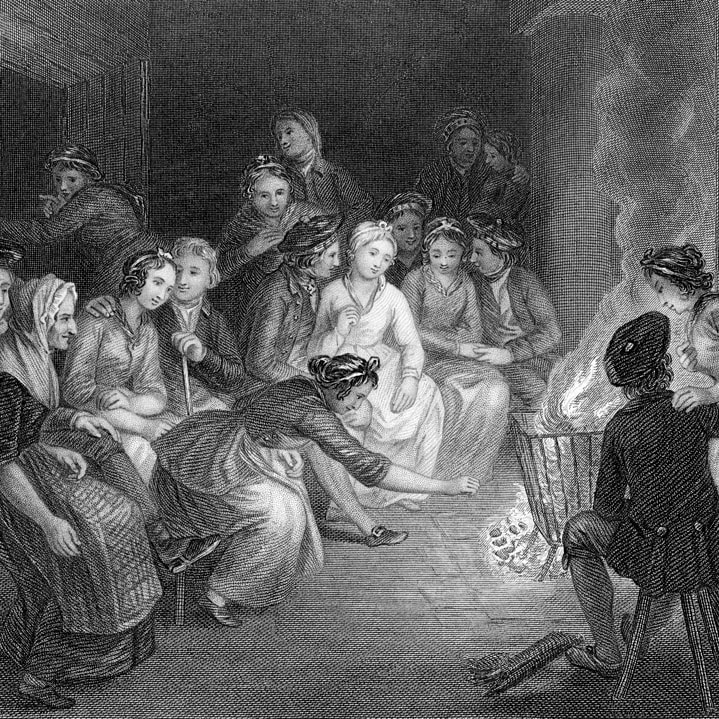
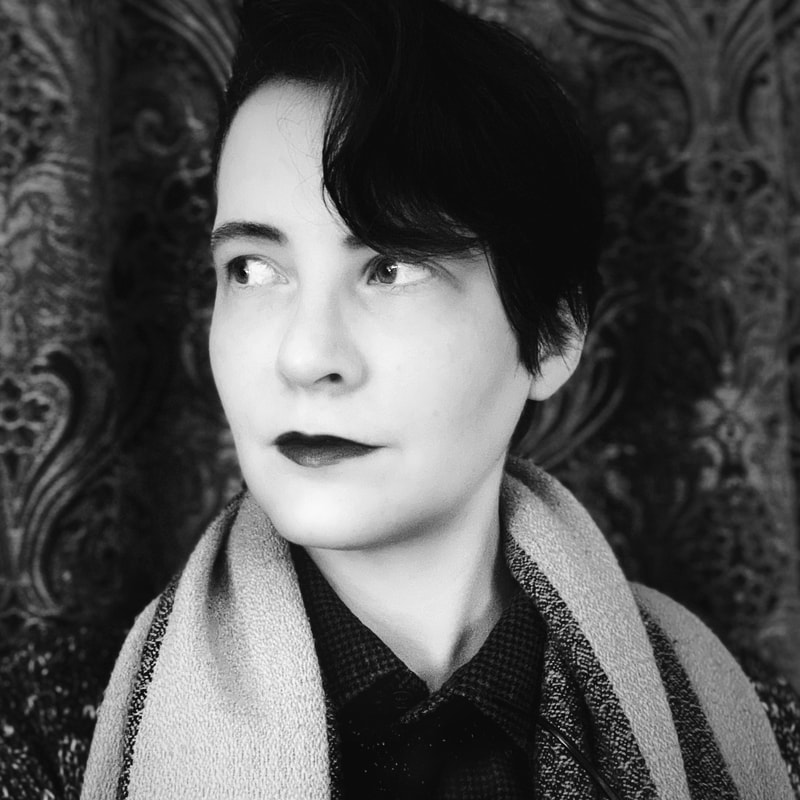
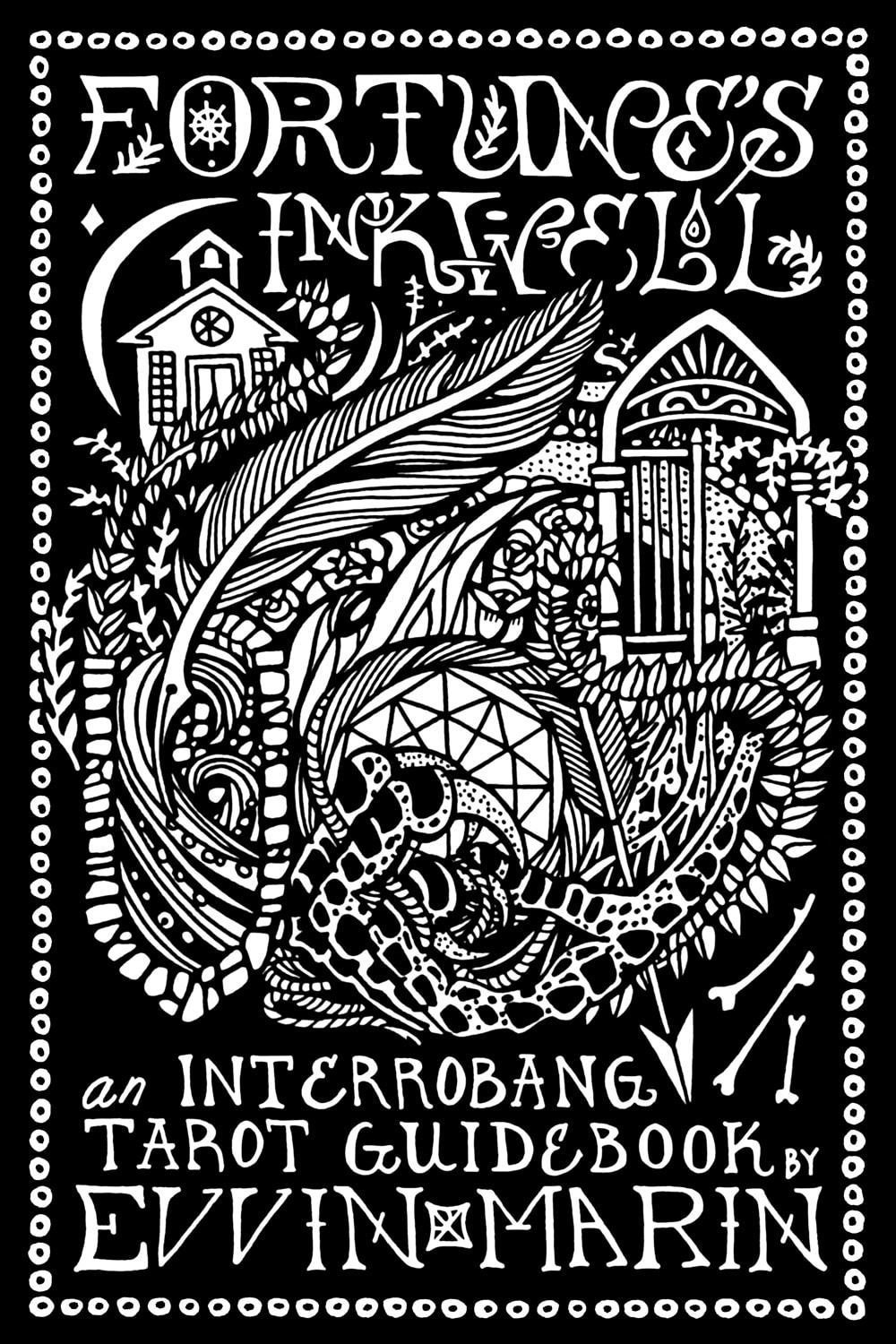
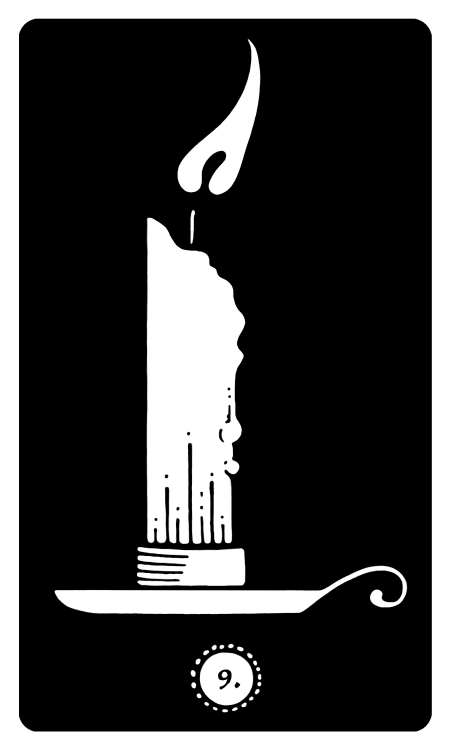
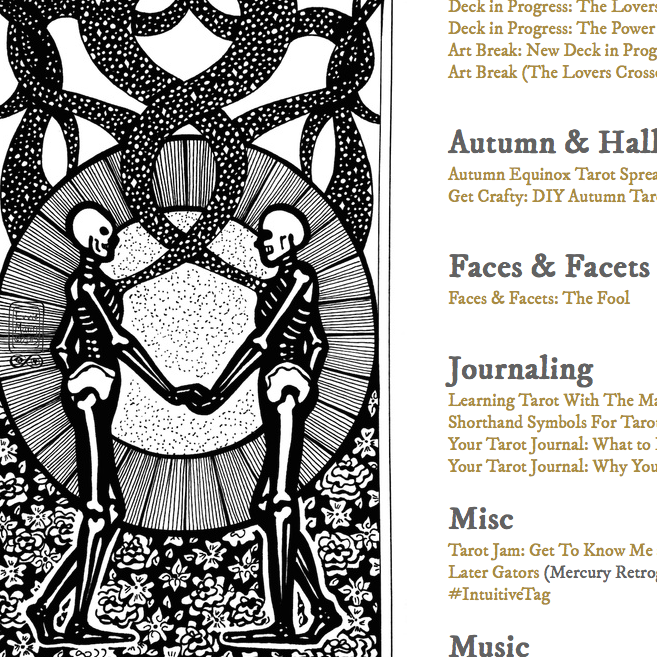
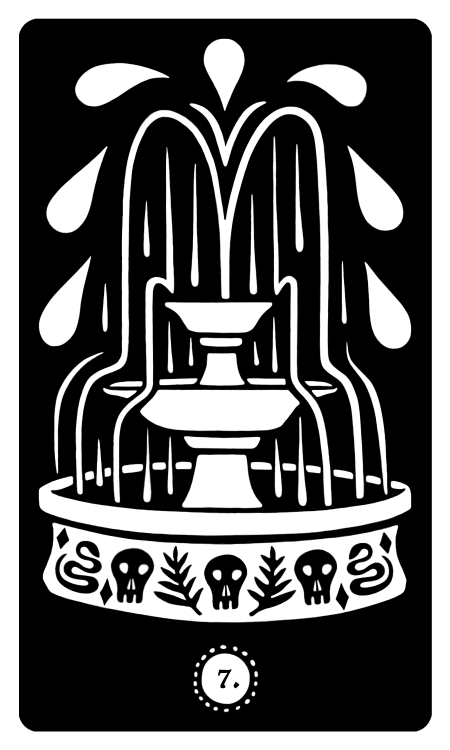
 RSS Feed
RSS Feed
